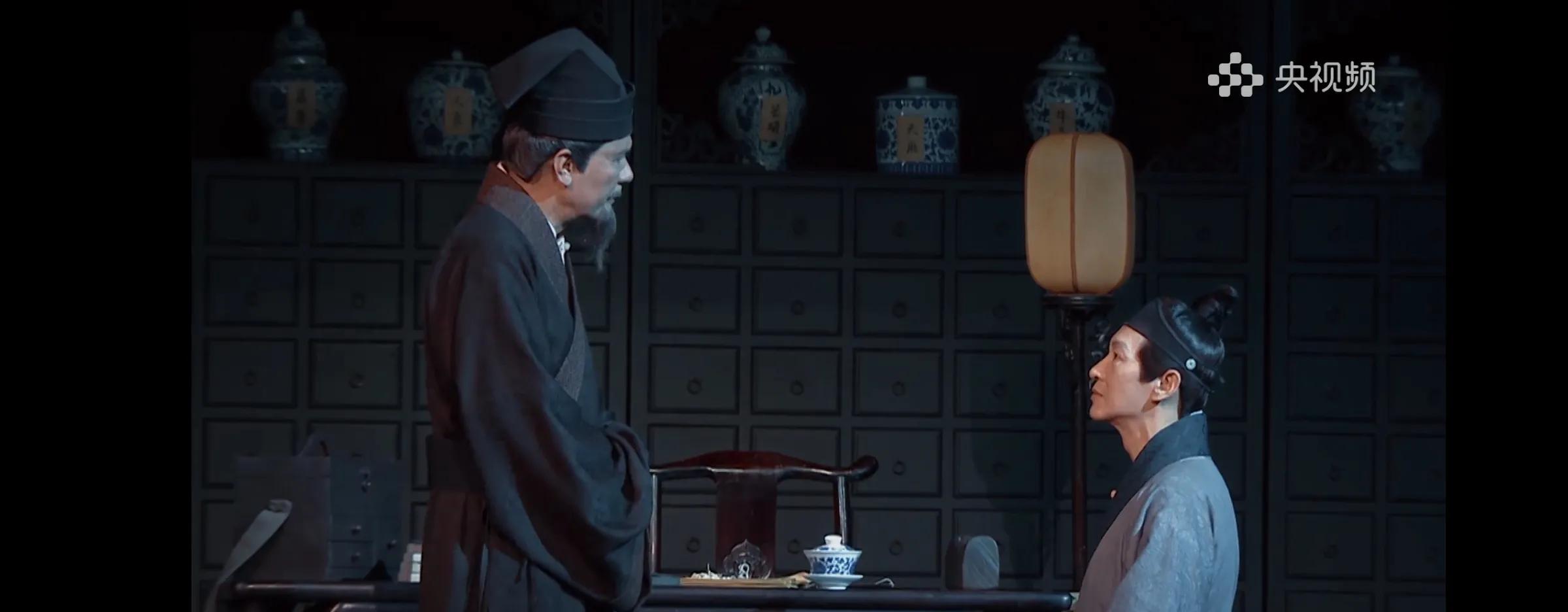A few days ago, I accidentally saw the preview of Teacher Wang Jinsong playing Li Shizhen in the "China in the Classics" Materia Medica, and the program went to see it when it was broadcast, which really touched me, and performed Li Shizhen's life in just one hour. The so-called benevolence of doctors, the supremacy of life, and the supremacy of the people, the "Compendium of Materia Medica" can be called a masterpiece, benefiting the people and inspiring the innovation and development of science and technology medicine in China.

Li Shizhen begged his father to let him become a doctor
Li Shizhen was obsessed with practicing medicine all his life, and begged his father three times to be a doctor, and finally he had to try to practice medicine as he wanted, "His body is like a countercurrent, his heart is stronger than iron and stone, he hopes that his father will be full of children's aspirations, and he will not be afraid of difficulties until he dies."
An interesting little story made Li Shizhen have the desire to cultivate Materia Medica
In the process of practicing medicine with his father Li Yanwen, he witnessed many misunderstandings caused by the confusion of the editors of the old Materia Medica among the people and the pharmaceutical merchants, and he had the desire to revise the works of Materia Medica.
When his father Li Yanwen died
He asked his father, "Can I be a good healer without you?" Can I finish writing the Compendium of Materia Medica without you?" the father said without hesitation: "Yes! ”
Previously, his father said that Li Shizhen was doing the most appropriate thing, but also the most difficult thing, the cultivation of Materia Medica is time-consuming and labor-intensive, the old Materia Medica has not been updated for many years, and he heard some rumors that are out of touch with reality in the process of revision, such as taking Ganoderma lucidum can become immortals.
Li Shizhen's "Compendium of Materia Medica" was compiled
(1578 AD) Ming Dynasty Li Shizhen wrote the "Compendium of Materia Medica" in fifty-two volumes, nearly 1.9 million words. Expressing his own views on the errors and feudal superstitions in the records of his predecessors, the appearance of Shi Zhenyi can often be seen in the book. Those who are wrong change it, and those who are missing add it, "Tread on thousands of rivers and mountains, wear wind and frost, rain and snow, go through cold and summer, and guard a lone lamp." After nearly thirty years, Li Shizhen finally revised this medical masterpiece.
Ming Dynasty Wang Shixian
It took nearly thirty years to compile the "Compendium of Materia Medica", and in order to print the "Compendium of Materia Medica", Li Shizhen was willing to bend down again and beg for people to be a "ship against the current".
Wang Shixian described Li Shizhen in the "Compendium of Materia Medica" as follows: Li Jundongbi of Chu Puyang, who gave Benshan Garden a day and stayed for several days. To peep at its people, to look at the appearance, to see the body, to Tsujin Ran Tan Yiye, one person south of the True Dipper. Unpacked, without long objects, there are dozens of volumes of the Compendium of Materia Medica.
Dialogue across time and space
The Compendium of Materia Medica has just been engraved, and Li Shizhen has passed away, and it is regrettable that he was not able to witness the publication of the book with his own eyes.
The program arranged dialogues across time and space, and Li Shizhen finally saw the printed version of the "Compendium of Materia Medica" to realize our dreams.
"Like a boat against the current, the heart is stronger than iron and stone, looking forward to the father's full child's ambition, until death is not afraid of difficulties"
The British biologist Darwin has repeatedly cited the Compendium of Materia Medica and called it the "Encyclopedia of Ancient China".
In 1953, Li Shizhen's portrait was embedded in the newly completed campus of Moscow University in the Soviet Union, alongside Newton, Copernicus, Marie Curie, Darwin and other world scientific giants.
As "China in the Classics" says,
Classics are an important foundation and carrier for the inheritance and development of traditional Chinese culture
Whether it is Li Shizhen or contemporary medical workers, what they inherit and carry forward is the spirit of seeking truth and pragmatism, caring for people's livelihood, and constantly pioneering and innovating in the spirit of traditional Chinese science.
It is precisely because of this spirit of "not being afraid of difficulties" that generations of doctors can overcome difficulties and use medical techniques to benefit future generations.
The world's medical books, the world's people jointly cultivate it